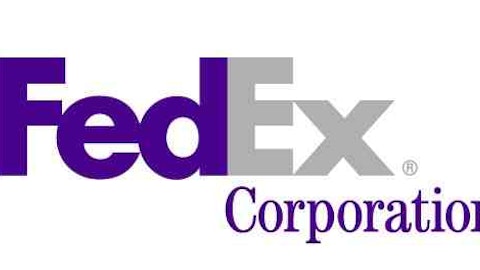
Importantly, Baidu isn’t the only one interested in ARM-based servers. Both Amazon.com, Inc. (NASDAQ:AMZN) and Facebook Inc (NASDAQ:FB) have looked into it, though both appear to be waiting for the next generation of ARM designs. The major sticking point for the companies is the availability of 64-bit chip designs, while the current generation is just 32-bit. Currently the 32-bit chips don’t stand up to their memory demands the but future designs will. Baidu is using the servers for storage, which requires less power than other operations.
According to both Marvell and ARM this is the first commercial deployment of a server built around an ARM chip. This is a huge step for ARM-based designs and a major milestone in the server landscape.
Traditionally servers are built around chips from Advanced Micro Devices, Inc. (NYSE:AMD) and Intel Corporation (NASDAQ:INTC). Both must be weary of ARM designs reaching into their stronghold, particularly since its designs already dominate the mobile space. All is not lost though, primarily due to AMD and Intel’s lead on 64-bit designs. For its part, Intel has been pushing the power consumption of its chips lower and lower; it may be able to erase the big advantage of ARM-based servers.
AMD has taken a different approach, opting to build servers that make use of ARM-based devices along with their more traditional line. This is a telling move, signaling the changes hitting the market.
Server Manufacturers Are Already Experiencing a Shake Up
More than two years ago Facebook started initiative that hits OEMs where it hurts, designing their own servers rather than letting Hewlett-Packard Company (NYSE:HPQ) and Dell Inc. (NASDAQ:DELL) take the reins. The initiative and its guiding foundation, called Open Compute, is focused on building efficient computing infrastructure at the lowest cost. This Ars Technica article takes a technical look at Facebook’s motivations for leading its own server design for those interested. The largest benefits are in power savings, cost savings, and the ability to mix and match chip suppliers, which ultimately leads right back to cost savings.
Not to be left out, both Dell and H-P have begun work on their own Open Compute compliant designs. Facebook is currently testing one of the H-P servers, but as Ars Technica reports, has no plans to include OEM servers in its new Swedish data center. One has to wonder if this shift in the server business helped lead Michael Dell’s decision to take his namesake company private. The LBO will allow drastic restructuring without the scrutiny one would endure as a publicly traded company.
What Are the Implications?
For companies like Facebook and Baidu that rely on enormous amounts of computing power, the benefit is clear: cost reduction. Both operate on massive scales, so even small power savings can have a significant effect on the bottom line. For ARM and the companies that fabricate their designs, moving in to the server space opens the door to a huge market and revenue source.
As you would expect, the news isn’t so rosy for the traditional powers. Even if Intel and AMD manage to erase the power efficiency advantage, they’ll still face pricing pressure due to the Open Computing initiative. Adding options puts more power in the buyer’s hands and will ultimately lead to price competition and shrinking margins. The same can be said for the server manufacturers, though they may welcome the price competition on some of their manufacturing inputs.
The article Baidu Is Helping Disrupt the Server Market originally appeared on Fool.com and is written by Chris Moore.
Copyright © 1995 – 2013 The Motley Fool, LLC. All rights reserved. The Motley Fool has a disclosure policy.





